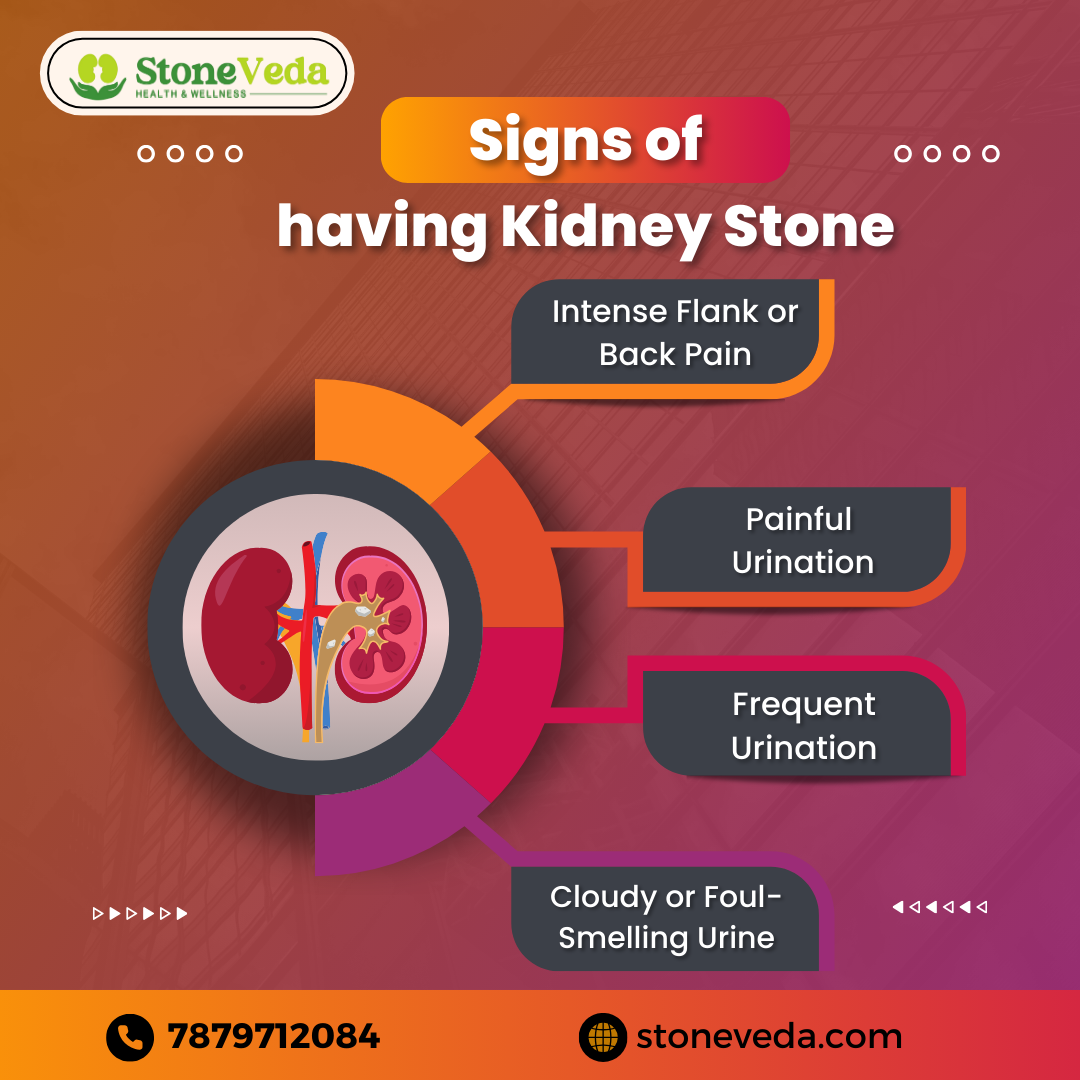
Title: Understanding Kidney Stones: Causes, Symptoms, and the Ayurvedic Approach
Introduction
Kidney stones, known as “pathari” in Hindi, can be a painful and bothersome condition. These small, hard deposits can develop in your kidneys and cause discomfort that ranges from mild to excruciating. In this blog, we’ll delve into the reasons behind kidney stone formation, how to recognize its symptoms, and why opting for Ayurvedic treatment, specifically with Stone Veda Healthcare, is a wise choice.
Why Do Kidney Stones Form?
Kidney stones can form for various reasons, primarily due to an imbalance in the substances that make up your urine. Factors contributing to kidney stone formation include:
- Dietary Choices: Consuming a diet high in oxalate-rich foods, like spinach and chocolate, or being dehydrated can increase your risk.
- Family History: If someone in your family has had kidney stones, you may be more likely to develop them.
- Medical Conditions: Conditions such as obesity, urinary tract infections, and certain metabolic disorders can increase the likelihood of kidney stones.
- Age and Gender: Men, especially those aged 30-60, tend to be more prone to kidney stones.
Recognizing Kidney Stone Symptoms
Identifying kidney stone symptoms is crucial for timely treatment. Common signs include:
- Severe Pain: Sudden and intense pain in the back, side, lower abdomen, or groin.
- Frequent Urination: A strong urge to urinate and increased frequency.
- Blood in Urine: Urine may appear pink, red, or brown due to the presence of blood.
- Nausea and Vomiting: Feeling queasy or vomiting, often accompanied by the pain.
- Fever and Chills: Infection along with kidney stones can lead to fever and chills.
Why Not Homoeopathy for Kidney Stones?
While some may consider homoeopathy, it’s essential to understand that the effectiveness of treating kidney stones with homoeopathic remedies can vary greatly from person to person. Ayurveda, on the other hand, offers a holistic approach that addresses the root causes of stone formation and provides personalized solutions.
Surgery and its Challenges
Kidney stone surgery can be necessary in severe cases, but it comes with its own set of challenges. Surgical procedures can be invasive, costly, and involve a recovery period. Ayurvedic treatment offers a non-invasive, natural alternative that focuses on prevention and healing.
The Ayurvedic Approach with Stone Veda Healthcare
Now, you might be wondering why Ayurvedic treatment from Stone Veda Healthcare is the best choice. Here are some compelling reasons:
- Expertise: Our team comprises seasoned Ayurvedic specialists with extensive experience in kidney stone treatment, ensuring you receive the highest standard of care.
- Holistic Wellness: Beyond treatment, we focus on promoting overall health and wellness through personalized plans.
- Cutting-Edge Technology: We stay at the forefront of Ayurvedic advancements, utilizing state-of-the-art techniques for effective and minimally invasive treatments.
- Compassion: We understand the physical and emotional challenges that come with kidney stones, ensuring you feel supported and valued.
- Natural Healing: Ayurveda relies on natural remedies, reducing the need for synthetic medications and their potential side effects.
Conclusion
In conclusion, kidney stones can be a painful condition, but they are manageable with the right approach. Ayurvedic treatment from Stone Veda Healthcare offers a holistic, personalized, and natural solution to kidney stone problems. So, if you’re dealing with kidney stones, consider the Ayurvedic path for effective and long-lasting relief. For more information, visit our website at www.stoneveda.com and take the first step towards a stone-free, healthier life.


